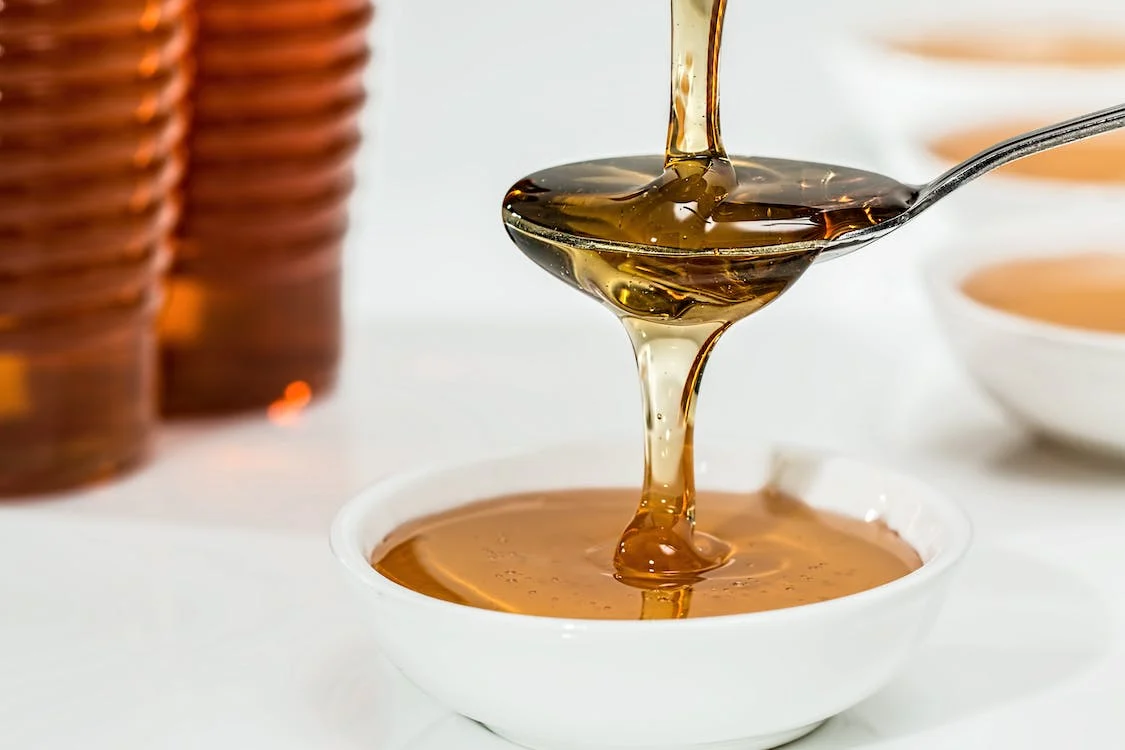
Honey, a golden elixir produced by honeybees through the nectar of flowers, has been cherished across cultures for centuries not only as a delightful sweetener but also for its diverse array of health benefits. This liquid gold is more than just a natural alternative to sugar; it is a complex substance with an intricate composition that provides a range of advantages for our well-being.
In the world of natural remedies, honey stands as a timeless companion, offering not only sweetness to our palate but also a wealth of benefits that have stood the test of time. As we savor its distinct taste, we also tap into a tradition that spans centuries, recognizing honey not just as a condiment but as a multifaceted substance that contributes to our holistic well-being.
Antioxidant Properties
-
- Honey is rich in antioxidants, which can help protect your body from cell damage caused by free radicals. Antioxidants are associated with a reduced risk of chronic diseases.
Beyond its innate sweetness, honey is renowned for its antioxidant properties. Packed with compounds like flavonoids and polyphenols, honey acts as a shield against oxidative stress, aiding in the prevention of cellular damage. The antioxidants present in honey are linked to a reduced risk of chronic diseases, making it a valuable addition to a health-conscious diet.
Wound Healing
-
- Honey has natural antibacterial and antifungal properties. It has been used topically to promote wound healing and prevent infection. Manuka honey, in particular, is known for its potent antibacterial effects.
One of the remarkable attributes of honey lies in its ability to foster wound healing. With natural antibacterial and antifungal properties, honey has been employed for centuries as a topical treatment for cuts, burns, and other skin injuries. Certain varieties, such as Manuka honey, exhibit particularly potent antibacterial effects, contributing to its role in promoting skin health.
Sore Throat Relief
-
- Honey is often used as a home remedy for soothing sore throats. Its thick consistency helps coat the throat, while its antimicrobial properties may help fight infection.
The soothing nature of honey extends to respiratory health. As a time-honored remedy for sore throats, honey’s thick consistency forms a protective coating, while its antimicrobial properties may assist in combating throat infections.
Cough Suppressant
-
- Honey can be an effective and natural cough suppressant, especially when combined with warm water or herbal teas. It helps soothe the throat and may reduce irritation that triggers coughing.
Its efficacy as a cough suppressant has also made honey a trusted ingredient in many home remedies and over-the-counter cough medications.
Boosts Energy
-
- The natural sugars in honey, primarily fructose and glucose, make it a quick source of energy. Consuming honey before exercise can provide a natural energy boost.
For individuals engaging in endurance activities, honey can be a convenient and natural source of energy. It is a common choice for athletes who need a quick energy boost during prolonged physical exertion.
Improved Sleep
-
- Honey may promote better sleep when taken with warm milk or herbal tea before bedtime. It is believed to stimulate the release of serotonin, which converts into melatonin, a hormone that regulates sleep.
Honey contains a small amount of the amino acid tryptophan. Tryptophan is a precursor to serotonin, a neurotransmitter associated with mood and relaxation. Serotonin, in turn, can be converted into melatonin, the hormone responsible for regulating sleep-wake cycles. Consuming honey may contribute to this conversion process and aid in the natural production of melatonin.
Digestive Health
-
- Honey has prebiotic properties, meaning it supports the growth of beneficial bacteria in the digestive system. This can contribute to a healthy gut microbiome.
Honey’s role in supporting digestive health is notable as well. With prebiotic properties, it fosters the growth of beneficial bacteria in the gut, contributing to a balanced and healthy gut microbiome.
Skin Care
-
- When applied topically, honey can moisturize the skin and has been used in various skincare products. Its natural antibacterial properties may also help with certain skin conditions.
Not limited to internal benefits, honey is a versatile ally for skincare. When applied topically, it serves as a natural moisturizer, offering hydration to the skin. Its antimicrobial properties can be beneficial for various skin conditions, contributing to its inclusion in a variety of skincare products.
Rich in Nutrients
-
- Honey contains small amounts of vitamins, minerals, and antioxidants. While it’s not a significant source of these nutrients, every bit can contribute to overall health when used as part of a balanced diet.
While honey is not a significant source of vitamins and minerals, it does contain trace amounts of some, including vitamin C, and B vitamins, and minerals like potassium, calcium, and iron. The levels of these nutrients can vary depending on the floral source of the honey.
Allergy Relief
-
- Some people believe that consuming local honey may help alleviate seasonal allergies.
The idea behind using honey for allergy relief is based on the concept of immunotherapy. The theory suggests that consuming small amounts of local honey, which may contain trace amounts of pollen, could help the body build a tolerance to pollen allergens over time.
It’s important to note that while honey offers these benefits, it should be consumed in moderation due to its high sugar content. Additionally, infants under the age of one should avoid honey due to the risk of botulism. Always choose raw, unprocessed honey for maximum health benefits, as processing may reduce some of its natural properties.











Leave a Comment